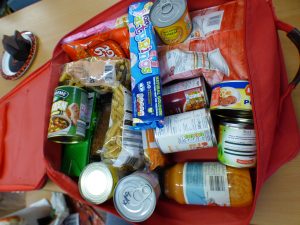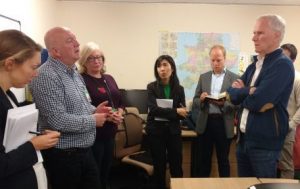The Oral History Collective is part of a growing movement of researchers and civil society groups whose work shines a light on the misery inflicted by the UK Government’s welfare ‘reforms’ since 2010. Our Foodbank Histories research comes out of a belief that poverty has a past, and that the current rise of foodbanks needs to be understood in its historical context. This context also sheds light on the Government’s current policy approach to the Covid-19 pandemic, which is in alignment with their approach to social policy over the past decade. Indeed, the horror expressed by many over the Government’s initial (now rejected) ‘take it on the chin’ approach to Coronavirus is a familiar feeling for many on the front line of dealing with the fall-out of a wide range of social policies. In this blog post, Alison Atkinson-Phillips argues that the utilitarian beliefs of the 19th Century continue to have an impact today, and argues for a bit of hope.
Continue readingTag Archives: poverty
Reply
“I was born poor, and I will die poor”: Reflections on disability, ill health and poverty in the age of Universal Credit

This Disability History Month, Silvie Fisch, director of Northern Cultural Projects and associate researcher with the Oral History Unit & Collective, shares some of the stories she heard during our Foodbank Histories project and reflects on the interconnections between disability, ill health and poverty in the age of Universal Credit.
Foodbank Histories meets the United Nations

When the United Nations Special Rapporteur for Extreme Poverty visited the Newcastle West End Foodbank in Wednesday, the Oral History Collective was invited along to share some of the research findings from our six-month Foodbank Histories project, a partnership with Northern Cultural Projects. This work is also part of the Being Human festival, 15-24 Nov. So why is it important?
